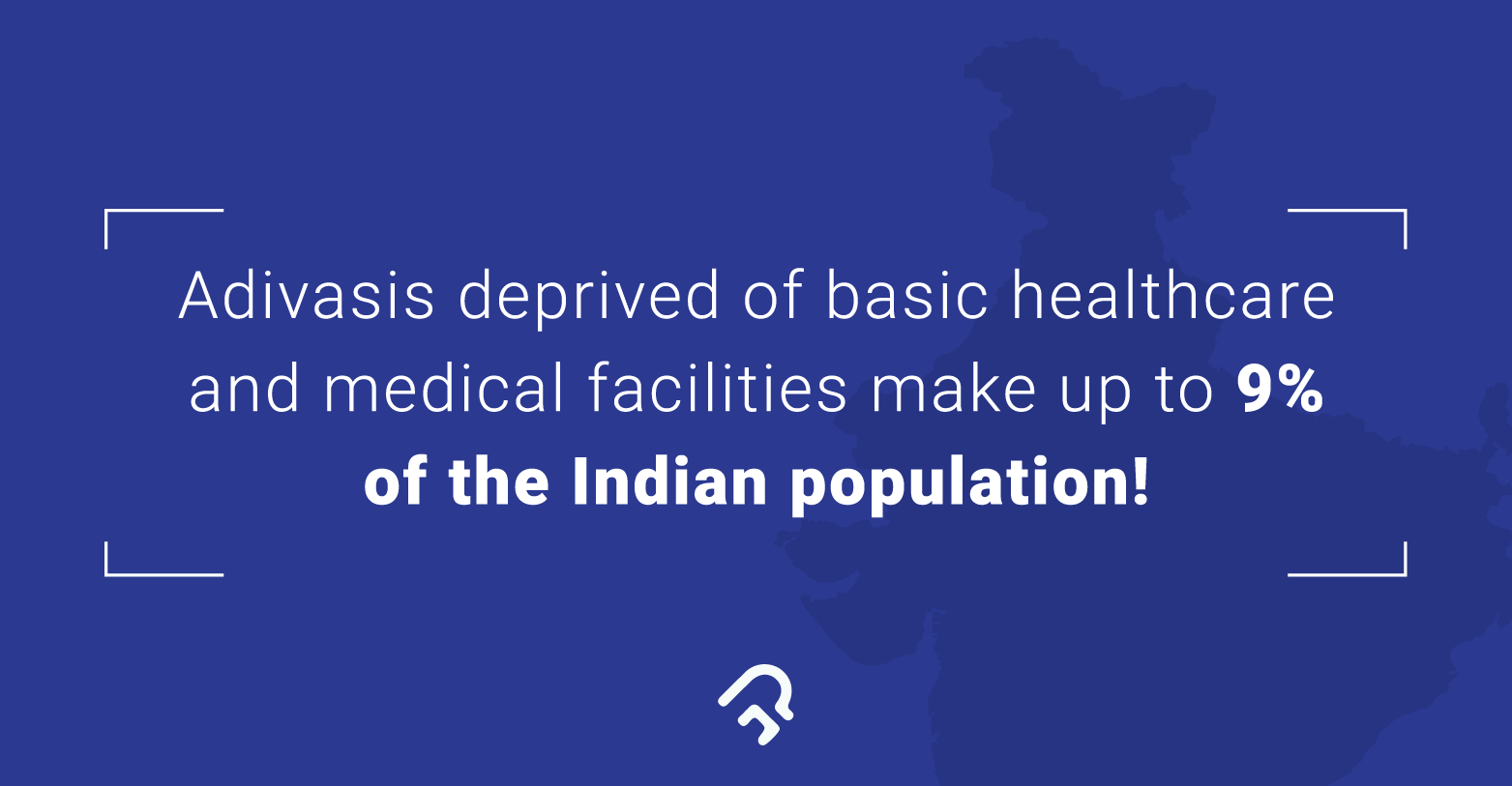Adivasi Healthcare in India – A Glimpse
By Dr. Nikita Toshi +2 more

Get,

to manage your symptom
Get your,


4 Cr+ families
benefitted

OTP sent to 9988776655



You’ve successfully subscribed to receive
doctor-approved tips on
Whatsapp

Get ready to feel your best.

Hi There,



Register to Avail the Offer
Send OTPBy continuing, you agree with our Privacy Policy and Terms and Conditions

Hi There,

Trusted by 4 crore+ families

OTP sent to 9988776655



You have unlocked 25% off on medicines




Code: NU25

By Dr. Nikita Toshi +2 more
Adivasi community makes up to 9% of the Indian population. While the urban population strives for better infrastructure, larger shopping arcades, entertainment facilities, this section of the society sadly doesn’t even have basic healthcare.
Meenakshi, a twenty-six-year-old resident of one of the 19 settlements of Kurumbas, Edavani ooru is a part of a particularly vulnerable tribal group (PVTG) in Attappady block. When she was expecting a child, doctors at the primary healthcare centre, which is located nothing less than sixteen kilometres from her house, suggested that she should visit the tribal speciality hospital. Her condition was that of severe concern threatening her and her child’s wellbeing. Nagan, her husband accompanied her to the hospital situated 25 kilometres away from her settlement, where she was refused admission because of the lack of experts and staff to look after her. On her way back, she developed labour pain and needed to be rushed back. Delivering in just the seventh month, Meenakshi gave birth to a stillborn.
Meenakshi is one of the other thirty-odd mothers who lost their babies in a single year in Attappady. While the rate of infant mortality ranges so high, the only gynaecologist the speciality hospital has, hadn’t turned up for weeks. According to the tribespeople, the posts of surgeons, anaesthetics and pharmacists were vacant at the speciality centre.

An old article on a similar topic cited the grim scenario of Pappa of the Muduga tribe, living in Varagampadi Ooru, also in Attappadi. Pappa has five children who she gave birth at home, without any attendant. She used to work till the labour pain was unbearable, when she thought it was time for the delivery, she would get into her dark little house, hold on to a knotted string hanging from the ceiling for strength and squat the baby out, cut the umbilical cord herself and also discard the afterbirth herself.
When interviewed, she assumed the air of a doctor and stated that all one needed to do to stop the bleeding umbilical cord was put some kerosene oil on it and then put some dough!
She thinks visiting hospitals is futile as they anyways don’t do much, don’t listen and deliver babies lying down and not squatting!
Adivasi women’s lack of trust in hospitals is due to their inefficiency and self-confidence that is uncalled for, lead to deliveries at home without midwives or with midwives without much knowledge. In most of these regions, practices such as leaving the mother dirty till way after the child is cleaned, applying mud to stop the bleeding umbilical cord, tying it with dirty pieces of string, cutting it with rusted knives or razor blades, tying stones to the umbilical cord so it falls off, etc are still prevalent.
If there is such void in even ensuring that the babies are alive post-delivery, how much optimism can they harbour that the doctors and government will help them tackle the many diseases ranging from Malaria to sickle cell anaemia? Adivasi healthcare is yet another issue that needs to be given its due importance in India.
PharmEasy strives to reach out to the remotest corners of the country and make affordable healthcare a reality for everybody. It’s a long way to go”¦but the journey has begun!
Disclaimer: The information provided here is for educational/awareness purposes only and is not intended to be a substitute for medical treatment by a healthcare professional and should not be relied upon to diagnose or treat any medical condition. The reader should consult a registered medical practitioner to determine the appropriateness of the information and before consuming any medication. PharmEasy does not provide any guarantee or warranty (express or implied) regarding the accuracy, adequacy, completeness, legality, reliability or usefulness of the information; and disclaims any liability arising thereof.
Links and product recommendations in the information provided here are advertisements of third-party products available on the website. PharmEasy does not make any representation on the accuracy or suitability of such products/services. Advertisements do not influence the editorial decisions or content. The information in this blog is subject to change without notice. The authors and administrators reserve the right to modify, add, or remove content without notification. It is your responsibility to review this disclaimer regularly for any changes.
Comments